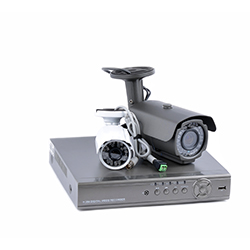
In the fast-paced world of sports, efficiency and security are paramount, not only for fans but also for athletes and staff. The adoption of facial authentication technology in stadiums and arenas is, according to the experts at Alcatraz AI, revolutionising access control, offering unparalleled benefits in terms of frictionless access, enhanced security, and operational efficiency. Here is a look at why facial authentication is the best technology for stadiums and arenas, especially for athletes and staff.
Athletes and staff often find themselves in situations where traditional access methods become cumbersome. Consider swimmers who, after practice, are wet and exhausted. The last thing they want to do is search for a key card or remember a PIN code to access their locker rooms. Facial authentication solves this problem by providing a seamless and touchless access solution.
With facial biometrics, all it takes is a quick glance at the device to gain access to secured areas. This speeds up the entry process and eliminates the risk of losing physical access tokens like key cards or wristbands. This frictionless access is a game-changer for athletes who are often in a rush between practices, games, and recovery sessions. It ensures they can move quickly and efficiently, focusing more on their performance rather than logistical hurdles.
Security is a critical concern in stadiums and arenas, where both high-profile athletes and valuable equipment are present. Traditional access methods, such as key cards, can be easily lost, stolen, or duplicated, posing significant security risks. Facial authentication technology offers a robust solution to these challenges.
Facial biometric systems use advanced algorithms to accurately identify individuals based on their unique facial features. This makes it extremely difficult for unauthorised persons to gain access. Unlike key cards, which can be shared or misplaced, facial features are unique and cannot be easily replicated.
For staff, this technology ensures that only authorised personnel can enter restricted areas, such as locker rooms, training facilities, and administrative offices. This level of security is particularly crucial during high-stakes events, where the safety of athletes and the integrity of the event must be maintained at all times.
Integrating facial authentication into a stadium or arena’s operations significantly enhances overall efficiency. This technology streamlines various operational processes for staff, reducing the time and effort required for access control management.
For instance, managing the movement of athletes, coaches, medical personnel, and other staff during major events can be complex and time-consuming. Facial biometric solutions can automate and expedite this process, ensuring smooth and secure access to different areas without the need for manual checks or physical credentials.
Moreover, facial authentication can be integrated with other systems, such as time and attendance tracking for staff. This integration allows for accurate and efficient monitoring of work hours, ensuring compliance with labour regulations and optimising staffing levels based on real-time data.
Facial authentication technology represents the future of access control in stadiums and arenas, particularly for athletes and staff. Its ability to provide frictionless access, enhanced security, and operational efficiency makes it the ideal solution for these dynamic and demanding environments.
For athletes, the convenience of effortlessly moving between training sessions, games, and recovery areas cannot be overstated. It allows them to focus on what truly matters—their performance and preparation. For staff, the heightened security and streamlined operations translate into a safer and more efficient working environment, ensuring that every event runs smoothly.
As technology continues to evolve, the adoption of facial authentication systems in stadiums and arenas is set to become more widespread. This shift enhances the experience for those who work and compete in these venues and sets a new standard for security and efficiency in the sports industry. Embracing this technology is a forward-thinking move that underscores a commitment to innovation, safety, and excellence in the world of sports.
In summary, facial authentication is not just a technological upgrade but a transformative solution that addresses the unique needs of athletes and staff in stadiums and arenas. Its clear and compelling benefits make it the best choice for modernising access control in these prestigious venues.











